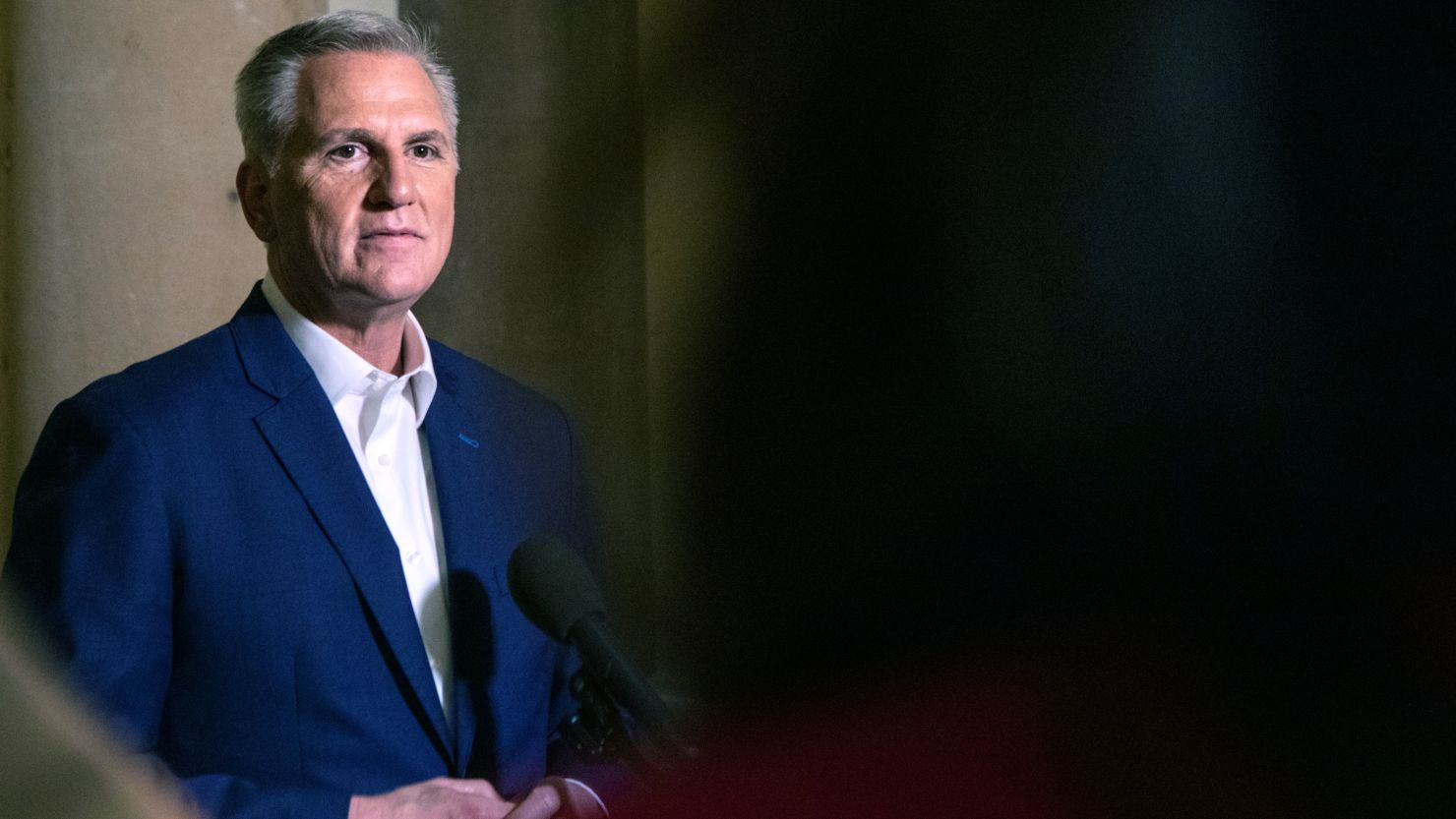The House voted Thursday evening to adopt several controversial amendments pushed by conservative hardliners to a critical national defense bill as the fate of the must-pass legislation hangs in the balance.
Passage of the amendments – which touch on hot-button issues of abortion policy and transgender health care access – is expected to cost Democratic votes and could potentially imperil final passage of the legislation, unless House Republicans are able to largely unite behind the measure to get it across the finish line.
And while GOP leaders made a major concession to conservative members by allowing the controversial amendment votes, it’s still not clear if a critical mass of hardline conservatives will support final passage. With only a narrow majority, House Republicans could only afford a few defections from within their ranks if there is no support from Democrats.
If the House passes the defense bill, it would still need to be reconciled with the Democratic-controlled Senate. The bill – known as the National Defense Authorization Act – sets the policy agenda and authorizes funding for the Department of Defense.
One of the most high-profile amendments that was adopted by the House would prohibit the secretary of defense from paying for or reimbursing expenses relating to abortion services. Many Democrats made clear ahead of the vote that if the amendment was included as part of the defense bill, they would be unlikely to support final passage.
Another contentious amendment that passed would bar a health care program for service members from covering hormone treatments for transgender individuals and gender confirmation surgeries.
House Speaker Kevin McCarthy, a California Republican, has defended his strategy of allowing controversial amendments put forward by the right flank, telling CNN’s Manu Raju that members “actually have a voice with what the bill will look like at the very end. It doesn’t predetermine what will be in the bill.”
Key amendments to defense policy bill
Many Democrats were fuming Thursday evening after the GOP-led House adopted the contentious amendments and said that their caucus would vote in lockstep against it.
Rep. Ted Lieu of California, a member of House Democratic leadership, told Raju that, “It’s now become an extreme radical defense authorization bill.”
“It’s going to make it really hard now to recruit people from across America because if you’re a woman and a doctor has told you, you are at risk for high-risk pregnancies, you’re not going to want to join the military because they can station you anywhere, including a red state where your life could be at risk. Your health will be at risk.”
He continued, “When you put in these radical extreme provisions, it’s going to be very hard for any Democrat and any sensible legislators to vote for it.”
House Democratic Leader Hakeem Jeffries refused to say how he would vote on final passage but slammed the inclusion of highly controversial amendments, telling CNN, the move by Republicans to adopt the amendment related to abortion was “shameful.”
The Pentagon’s abortion policy has come under an intense spotlight recently as GOP Sen. Tommy Tuberville has protested it.
Months into a hold on military nominees, Tuberville is still not relenting despite efforts by some of his own Republican colleagues to try and give him alternatives to back off his blockade. Pentagon officials have warned it’s having an impact on national security and military readiness.
Democrats had been expected to peel off in droves from backing the underlying bill if the abortion amendment was adopted as part of the NDAA, something that could put vulnerable members in a position of having to defend back home why they ultimately didn’t back a Pentagon policy bill that includes pay raises for members of the military and future investments in military infrastructure.
“It’s not ideal. I always support the NDAA,” one Democrat said on the condition of anonymity to speak freely about their political predicament. “It sucks, but I have to make a decision. That’s what I am weighing. I have to figure it out. Republicans are making the NDAA a culture war bill, but at the same time I’ve always voted for pay raises so this is a challenge.”
The House Armed Services Committee’s ranking Democratic member, Rep. Adam Smith of Washington state, and subcommittee Democrats released a statement Thursday night announcing their opposition to the bill.
“The bill we passed out of committee sent a clear, united message … that democracy still works, and Congress is still functional,” the Democrats said in their joint statement. “That bill no longer exists.”
Democrats who hail from districts with military installations say the prospect of voting against the NDAA on Friday, when a vote on final passage is likely to happen, is a tough one given their constituents.
Rep. Gerry Connolly said he was still weighing what to do. “It’s a big vote for me,” Connolly said. He added that roughly a quarter of his district’s economy is based on the military and the authorizations in the NDAA for new military infrastructure are huge for his constituents back home.
A number of Republicans from swing districts have also argued that social and culture issues don’t have a place in the defense authorization bill.
Republican Rep. Tony Gonzales of Texas criticized the hardline members of his party for adding the controversial amendments.
“Now we have the NDAA, which is becoming a partisan bill … I think it’s a missed opportunity, but par for the course, given the national politics,” Gonzales told CNN.
He added, “I think this shouldn’t surprise anybody. I mean, this is where it’s been for the entire 118th Congress, and I suspect nothing’s going to change. It’s going to be as partisan as it’s ever been, which is unfortunate. And it’s tough for those members that are trying to look beyond politics, and bring this country together. But that’s the world we live in.”
Rep. Chip Roy, a member of the Freedom Caucus who sits on the House Rules Committee, defended the inclusion of the amendments. “I want to see DoD focusing on defense and not on social engineering. So, you know, some good votes today where we’re moving DoD back to its core focus. And I think there’s a pretty good overwhelming amount of support among Republicans to do that,” he said.
Pressed on whether Republicans will have enough support to pass this on their own, since many Democrats have vowed to oppose the NDAA with these amendments attached, Roy replied, “We’ll see.”
This story and headline have been updated to reflect additional developments.
CNN’s Manu Raju and Morgan Rimmer contributed to this report.





